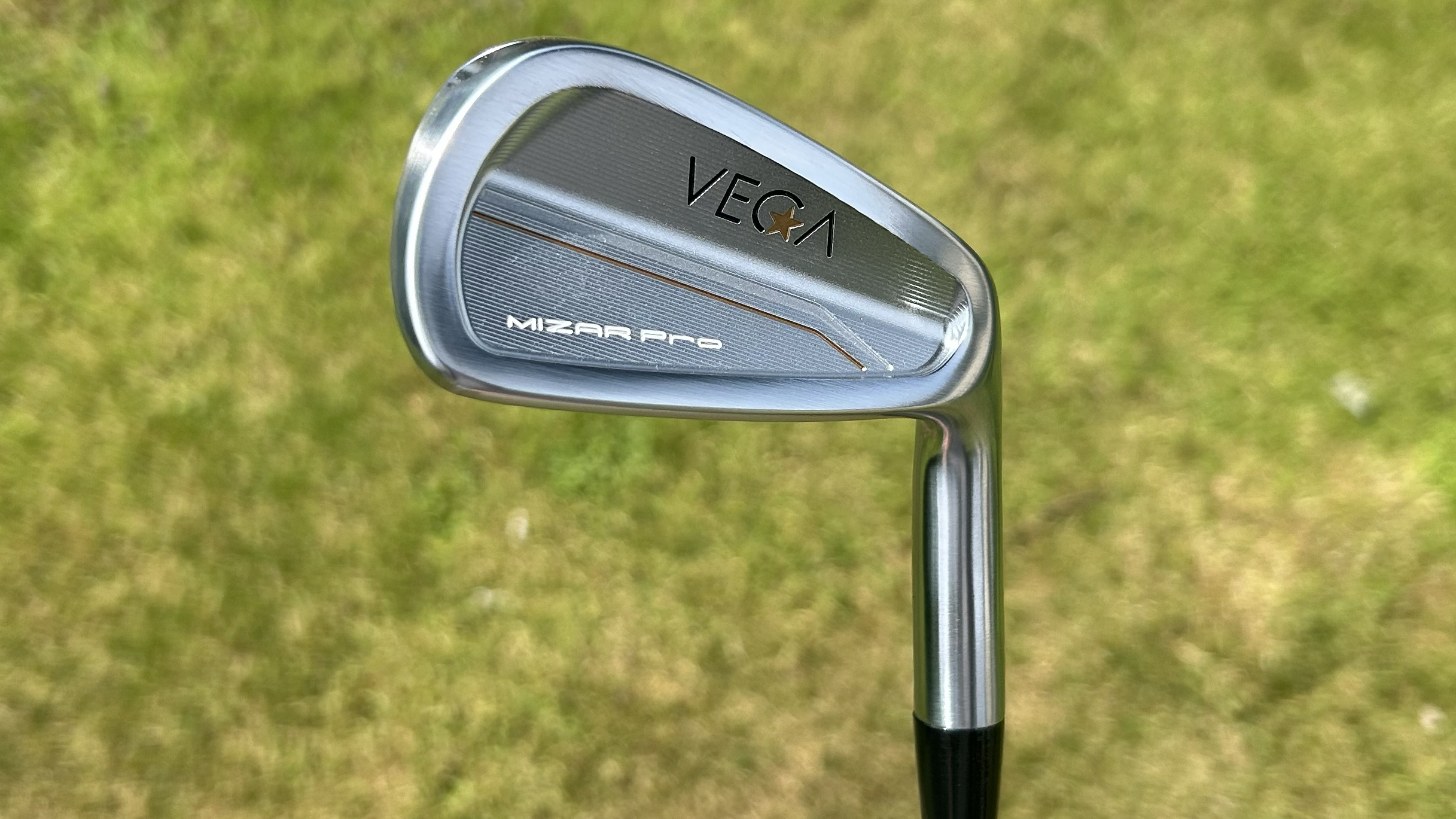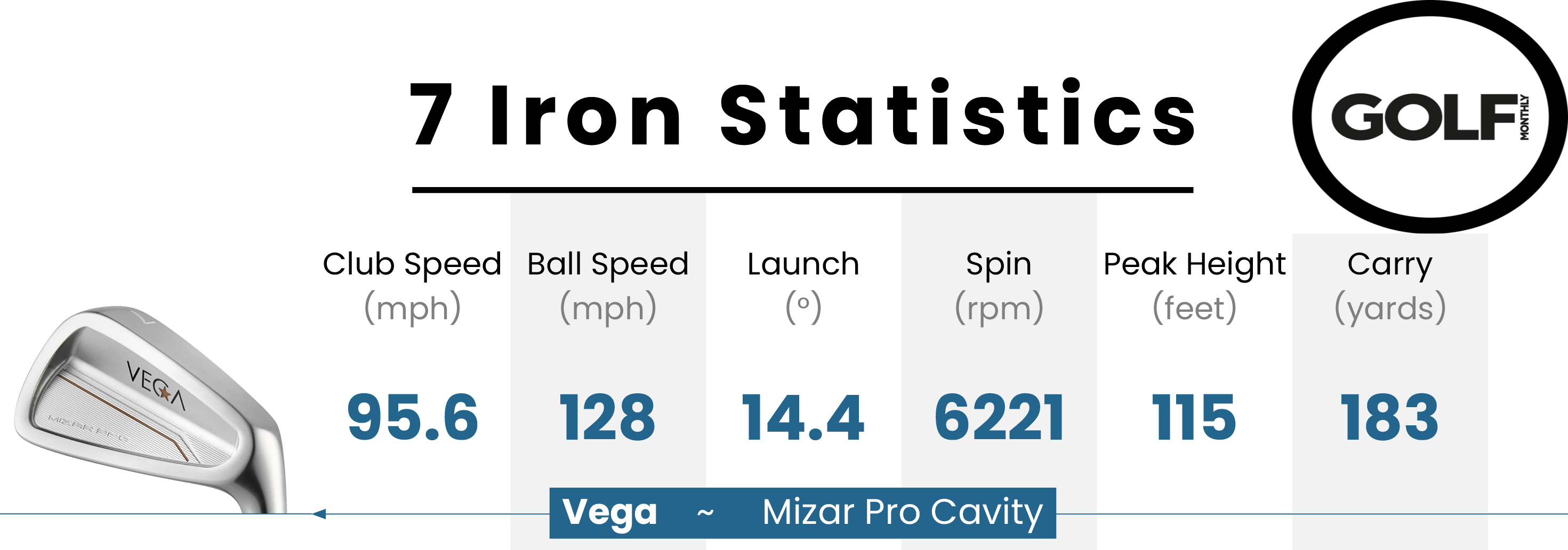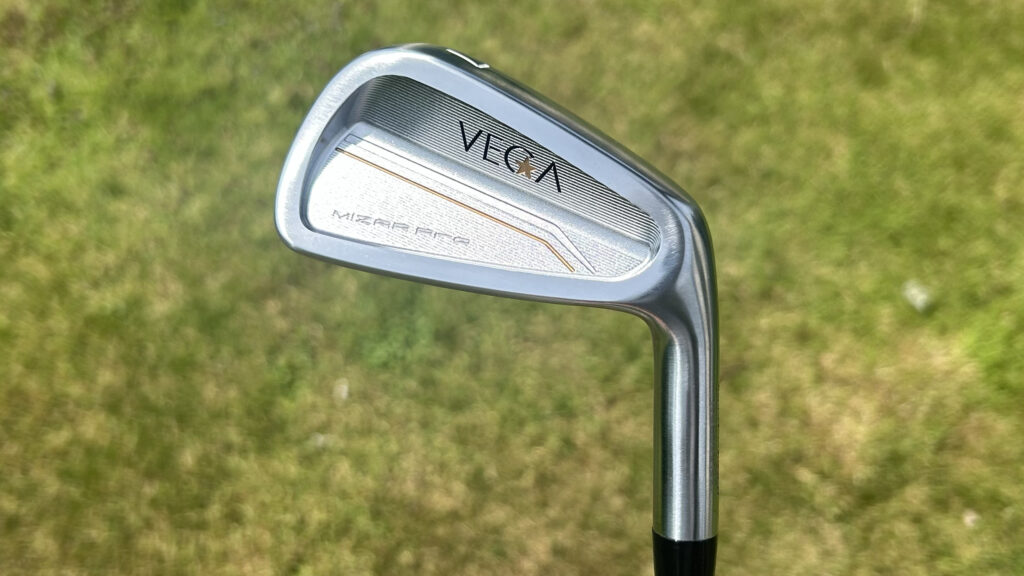In a market saturated with global giants and household names, Vega Golf has long occupied a slightly different space. The Japanese brand, founded on a legacy of traditional craftsmanship, operates in the artisan, boutique sphere. In my experience, Vega has always been for the golfer who wants to stand out, who appreciates a club that’s as much a work of art as it is a tool to play the game.
The new Vega Mizar Pro Cavity irons are a clear statement to this philosophy, oozing with shelf appeal and an undeniable sense of quality. So I took them to the driving range and golf course to see if they can compete with some of the best irons on the market in 2025.

(Image credit: Future)
In the address position, the Mizar Pro Cavity irons present a profile that is clean and confident, and the overall dimensions are perfectly appropriate for a model that would sit in the low handicap irons market. Furthermore, Vega has played a clever hand by creating these irons from the same raw forging as the Mizar Pro Blade to allow for a cohesive look for those going down a blended set route.
Best picks for you

(Image credit: Future)
To my eye, there is a specific design choice, however, that gives them a slightly unique appearance. Unlike many of their direct competitors, such as the TaylorMade P7CB or Mizuno Pro S3, Vega has not heavily beveled the top edge. This creates an optical illusion, making the topline appear slightly thicker than both the Mizuno and TaylorMade equivalents.
For some, this might add some peace of mind and enhance the club’s forgiving look, while others may prefer to look at a more streamlined, thinner profile.
It is also worth noting that the Mizar Pro Cavity presents a noticeable amount more offset than most irons in this area of the game. This will be very welcome to players who struggle with a right miss in their iron play, but to others it may not suit their eye or ball flight tendencies.

(Image credit: Future)
One of the most impressive and innovative features of the Mizar Pro is its interchangeable weight system, which allows for fine-tuning of the clubhead’s weight and feel. When I first saw this feature, I was skeptical. Would this mechanism compromise the club’s feel, creating a jarring sensation or extra vibration at impact?
I was pleasantly surprised to find that it had no negative impact whatsoever. The club felt incredibly solid and responsive, with the interchangeable weights seamlessly integrated into the head’s design, and it is a genuinely useful function for custom fitters to really dial in swing weight requirements. The feel at impact is what you would expect from a high-end forged iron, buttery and satisfying.

(Image credit: Future)
I tested the Vega Mizar Pro Cavity using TaylorMade TP5 golf balls on my Foresight Sports GC3 launch monitor, and there is nothing out of the ordinary to report in any of the major ball flight parameters.
The 7-iron I tested was certainly on the longer side in terms of carry and fairly punchy in ball speed for a low handicap cavity, but that could probably be attributed to the slightly stronger than ‘standard’ lofts on offer. The 7-iron comes in at 32˚, and for context, many of its contemporaries in this category sit more around the 33˚ or even 34˚ number.
Those looking for a little power boost or slightly lower ball flight without the need to jump up into the hollow-bodied players’ distance category will absolutely enjoy this iron.

(Image credit: Future)
For the golfer who wants a conversation-starting set of irons, the Vega Mizar Pro Cavity is a compelling option. They are very much a statement item for someone who is looking to be a little different and is prepared to pay a little more for that.
However, the question must be asked: does the performance on the course justify the price tag? In truth, when looking at the raw numbers on a launch monitor, there is nothing that would truly compel me to pay the higher cost (prices start from £1,813) over an iron like the TaylorMade P7CB or the Mizuno Pro S3, both of which offer exceptional performance in their own right.

(Image credit: Future)
The Mizar Pro Cavity delivers solid, consistent results, but they don’t offer a significant performance advantage that would sway a purely data-driven decision. Ultimately, the choice to buy these irons comes down to a desire for something special and unique, rather than a quantifiable performance gain, but as a self-confessed gear geek, I am entirely here for that line of thinking too!
A 4-PW set will start from £1813.00, and is available in a multitude of Shimada steel shafts or a proprietary Vega graphite option. There is also a wide variety of Iomic grips to choose from, which can be customised in terms of colour and thickness.







